Summer Job
A “Cliff Notes” Story
July 2010
Bob Hartwick was seventeen in 1937 when he hired on as a lifeguard at Palisades Interstate Park in New Jersey. For the next four summers he worked at the park’s beaches during the day, playing trumpet in local big bands in the evenings. Now ninety, he shares some of his memories with us.
First thing in the morning they raked the beaches, cleaning up the cigarette butts (almost everyone smoked back then). One morning in 1941 as he raked the beach at Bloomer’s, scraps of burnt paper wafted down from above: guest checks from the Rustic Cabin, the night spot atop the Palisades in Englewood Cliffs. (He’d noticed a column of smoke rising along the cliffs as he drove from Teaneck that morning.) That’s how he learned the famous club — Sinatra got his start there, always calling it his place — had burnt down.
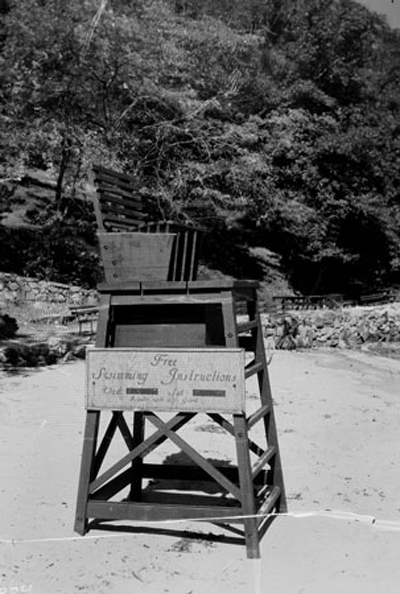
Another time when he was raking the beach at Bloomer’s his eye caught a splash out in the river: a sailboat dropping anchor. A man dove off the boat to take a swim as a woman onboard watched. The flood tide was running at full force that morning, pushing both boat and swimmer north — left, to Bob’s view. The anchor line pulled taut; the boat pointed into the tide and held. The swimmer kept moving left and moving left and soon he was far upriver from the boat, pounding the water to try to get back. If the woman would just pull up the anchor, Bob thought: the tide would take the boat toward the panicked man.
Instead — she dove in to help him!
From half a mile away Bob knew they were in deep trouble then. He yelled to the man who ran the nearby refreshment stand, told him to get the park police on the phone — tell them to send the launch down the river! Bob took one of the big paddle boards he’d been trained to use and pushed off into the open river, calculating as best he could the angle he needed to compensate for the incoming tide: one shot to get it right. He was a strong kid, his reckoning dead on. He got to the swimmers just as they’d begun to cling to one another; in moments they’d pull each other under. He told them to grab hold of the nose of the board. Just rest, he told them. It took only a few minutes more for the police launch to motor down from Alpine — minutes the exhausted swimmers would not have had.
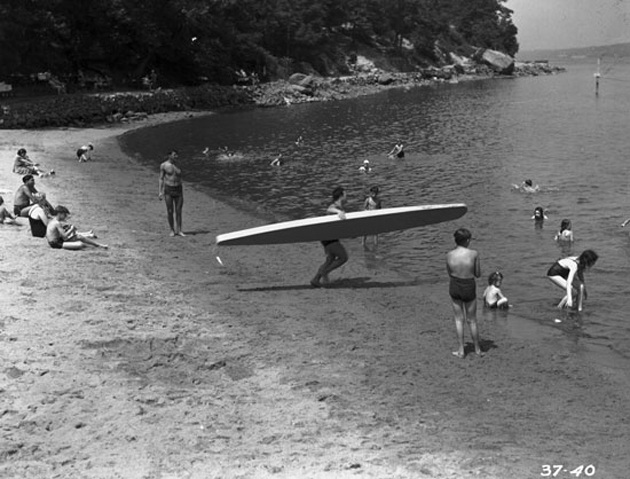
The river was murky. Once, during slack tide, he was on the lifeguard stand at Undercliff talking with some kids when he noticed what looked like an old mop head adrift in the river. Then he looked again and dived in and came up the ladder on the pier with a teenage girl over his shoulder. For several long minutes he worked on the girl, pumping her lungs, until at last she coughed out river water and drew breath again.
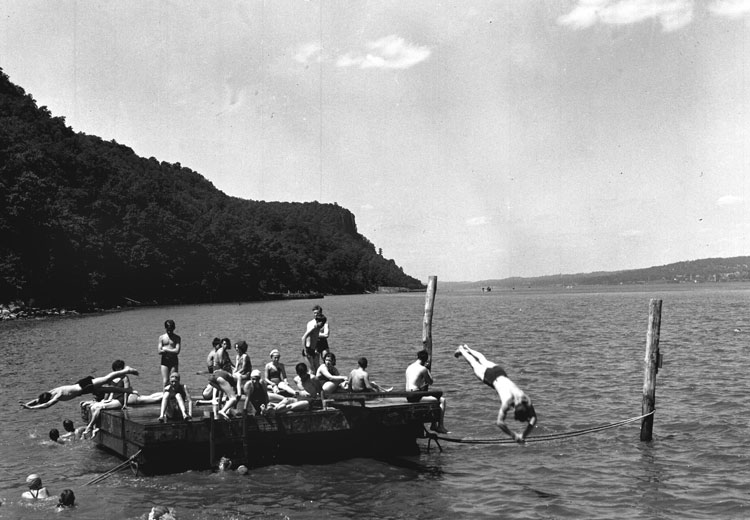
The Day Liners — DeWitt Clinton, Peter Stuyvesant, the Hendrick Hudson — came up the river, their big rollicking wakes knocking the swim floats around. (The maintenance crews added sand to the paint on the floats, so swimmers would keep their footing. That didn’t stop the seagulls from landing on the floats, spitting up fish bones, making a slippery mess anyhow. One of the lifeguards’ tasks, then, was to go out to the floats with buckets and garage brooms to scrub them down.)
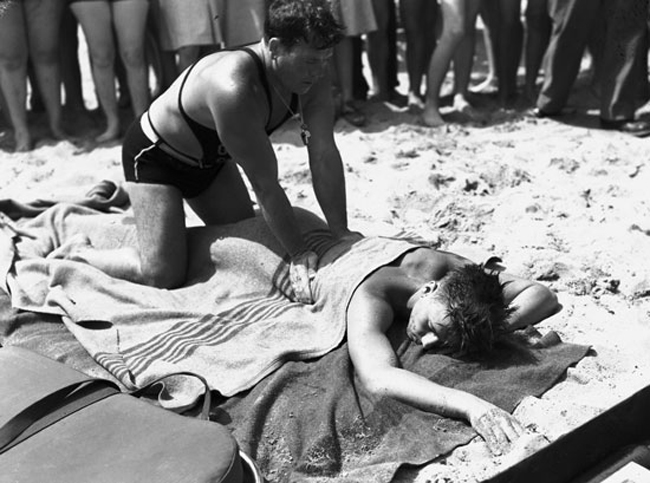
To this day he feels grateful to head lifeguard George Donovan — a one-of-a-kind guy, he’ll tell you still — not just for hiring him, but for helping him meet a certain girl Bob had noticed at Bloomer’s his first summer. Her name was Irma. She came from Canarsie, staying the summer with family on Hudson Terrace in Englewood Cliffs. She was “a climbing fool,” he remembers, trekking up and down the steep Dyckman Hill trail to the beach and back. They dated those four years, Bob picking her up in a beat-up ’29 Dodge that he somehow kept running.
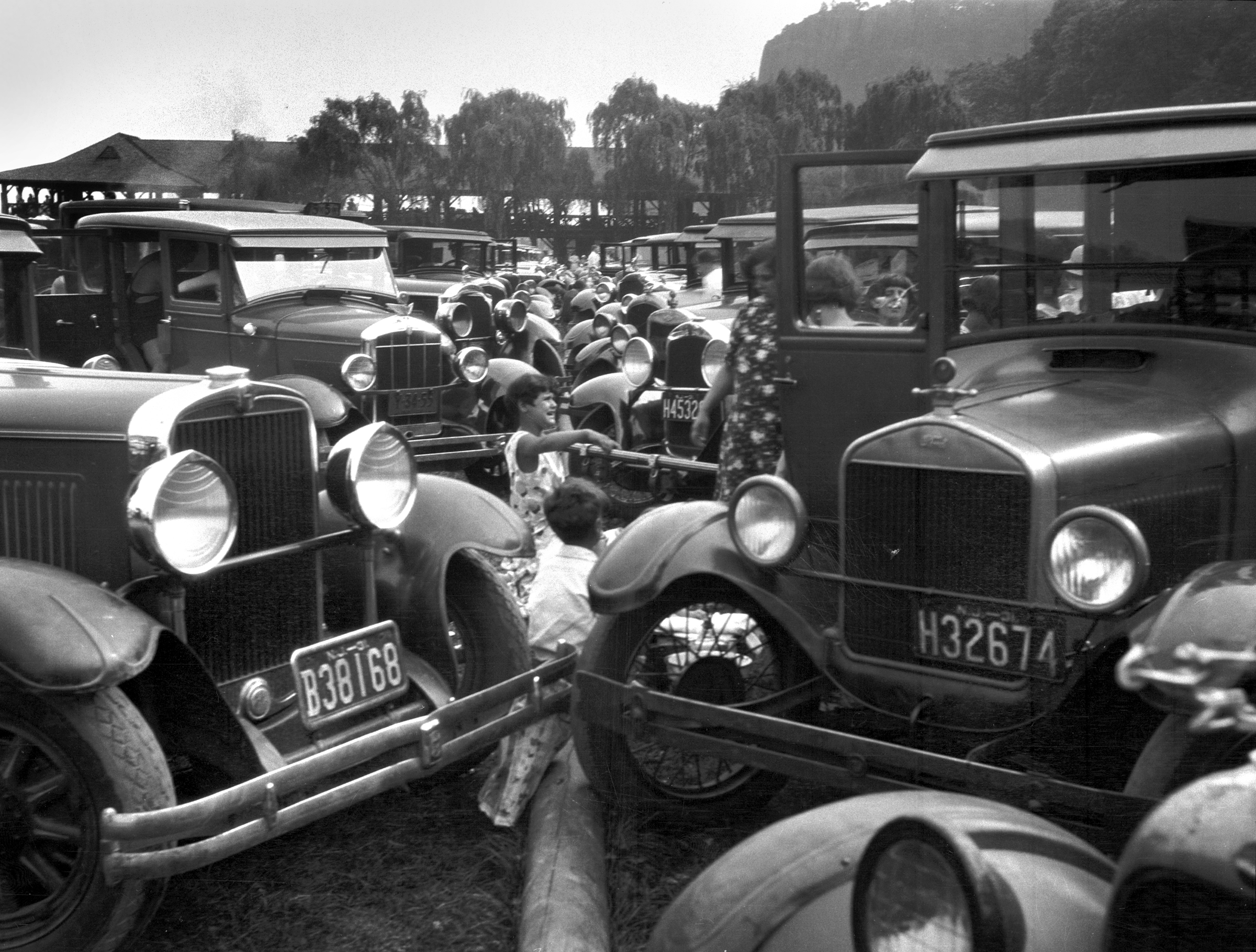
About that Dodge. In the fall, after the beaches were closed, he’d help George Donovan haul boats out of the water along the “marine railroads” the park had set up at the boat basins, maneuvering them with lines and rollers and big crowbars onto blocks for winter storage. Bob noticed the heavy drums into which the boaters poured their used motor oil. He found that by spring the silt and gunk settled to the bottom of the drums; the oil was honey-clear at the top. With George’s permission, he’d tip the big drums into a funnel and “decant” the oil into five-gallon containers he used to keep that Dodge going.
After the Japanese military attacked Pearl Harbor in 1941, Bob enlisted in the U.S. Navy, training as an aviation machinist. He served on two small carriers, Card in the North Atlantic, Tripoli in the Pacific. Tripoli was at Ford Island at Pearl when the Japanese surrender was announced. (Something you’ll never forget: those thousands of cheering sailors up and down the row of gray ships, each scaling his white cap into the sky, like birds.)
He and Irma married while he was on leave early in the war. After the war they brought up their two daughters in Westwood. Bob worked on airplane engines at Curtiss-Wright in Wood-Ridge — until jets took the place of piston engines — then at Bendix in Teterboro, finally at a machine shop in Englewood.
He lost Irma five years ago.
More than a hundred thousand people used the park’s bathing beaches each of the summers Bob Hartwick worked as a lifeguard. Among them, he would find his life’s companion — and save the lives of three strangers. Not bad for a kid at a summer job.
– Eric Nelsen –

